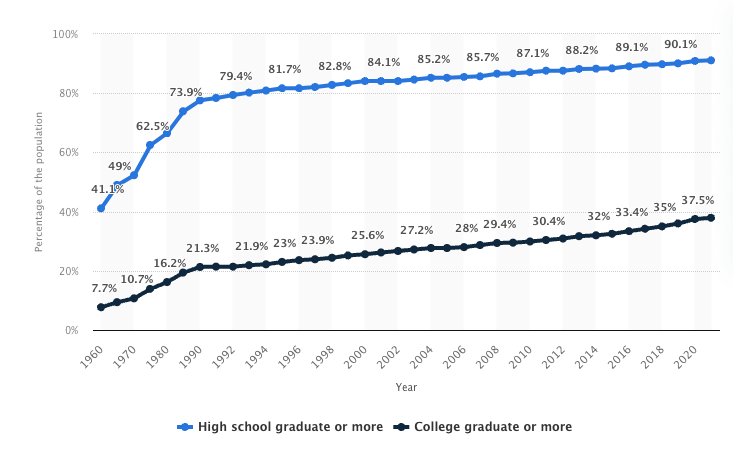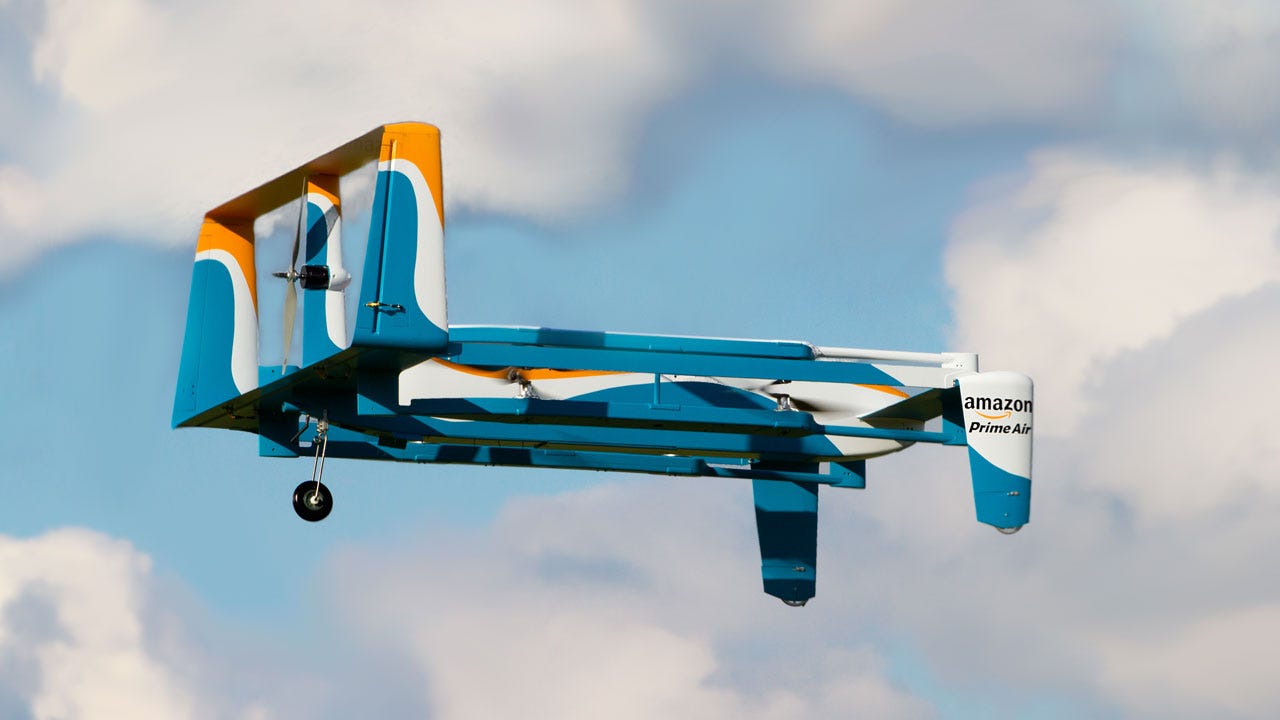Do you think that's air you're breathing?
A celebration of Independence Day and warning of the future
Today I take a moment to celebrate the privilege of living in the United States of America. As an individual who was born in a 3rd world country (Philippines) and immigrated here at a very young age, I was afforded an incredible wealth of support from the USA’s social safety net. Subsidized housing, food stamps, community college, college grants, free lunch, the list goes on, but you get the idea.
246 years ago, our founding fathers declared that we are no longer subject to the rule of the Monarch of Britain, King George the 3rd, and that we are now united, free, and independent. Under the premise of a future of freedom, the right to own property, and a better union, let’s celebrate my always and forever MVP, the United States of America!

I must admit, this 246-year-long social experiment called Democracy is heading towards a dangerous path that as an American I must call out. The leader of the charge? Technology. We are embarking on a journey of robotic and artificial intelligence automation when deployed, cannot be rolled back.
This is the 3rd industrial revolution.
My drawing skills aside, I am convinced we are entering a phase in history where AI will dominate the modern workforce. In Paul Daugherty’s 2018 book ‘Human + Machine: Reimagining Work in the Age of AI’, a compelling case is made that any job which has repetitive tasks or requires any type of data analysis will be replaced by a machine'.
Let that sink in:
Scientists conducting studies to extrapolate the efficacy of a new drug against Cancer? AI will do it, at scale, by performing thousands of experiments in the same time horizon it takes a human to do one.
An HR Manager conducting an assessment of a potential candidate to determine the best fit? AI will do it, by analyzing both verbal and non-verbal characteristics against petabytes of data to determine the probability of a candidate being a mediocre or exceptional employee
Farmers managing crops to maximize yield for an upcoming harvest? AI will do it by embedding technology into the machines and underground to automatically track yields against a target value while deploying or withholding genetically modified nutrients to ensure an optimal bounty.
This is in addition to all of the use cases we’re experiencing today: autonomous vehicles replacing taxi cab and delivery drivers, retail stores augmenting or replacing humans with computers, and customer service reps being replaced by voice-enhanced chatbots. It goes on.
At a glance, this sounds great, right? Increased time to market on life-saving drugs, job candidates hired based on merit + data, an abundance of food for the world, cheaper cab rides, fewer fatalities, faster customer service?
This may be nirvana for the select few who are positioned to benefit from this new era of technology, but for the masses it is problematic. There are at least 1 million people in the USA who making minimum wage. Moreover, 37% of the US population or approximately 100 million people have a college degree, and 90% of the population has at least a high school diploma. In aggregate, this represents approximately 296 million people, see below.
These are the people who’s jobs are at risk of being automated by machine learning and artificial intelligence. What happens when 296 million people are displaced by technology? In a population of 329 million (the USA). One word: Chaos. Something out of the netflix special “3 percenters”. For those who aren’t familiar, the elites (called the 3 percenters) have created an environment of nirvana, separate from the poors, who live in poverty without running water, electricity and food. Once a year the poors are invited into a life or death battle to earn the right to become a “3 percenter”. It’s wild.
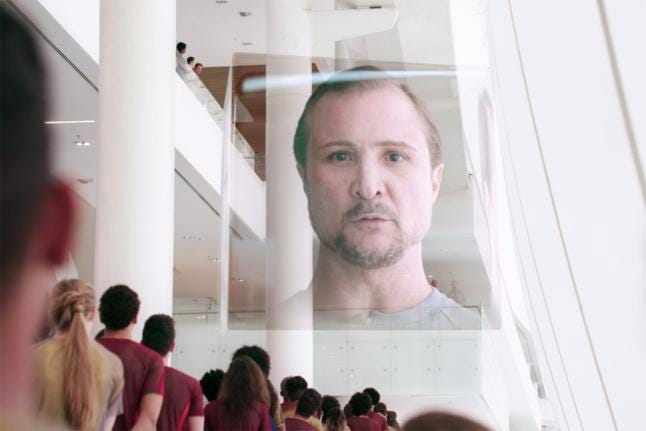
Extreme? Maybe. A common counterargument I hear is:
Those impacted by technology will have the opportunity to ‘reskill’ into today’s new era jobs. That HR Manager? He’s now an AI and ML Manager ensuring the machine acts with integrity and humanity. The scientist? She’s writing optimized pythons scripts to deploy against a new batch of data. The farmer? He’s at home watching monitoring the yield quality on his ipad.
This might be true, but it won’t benefit the masses. One job replaced by AI will not produce a new-era ‘AI-friendly job’. Our friends at McKinsey, the aspirational dream for 23-year-old ivy league graduates, call this out. Globally, 50% of all work activities can be automated and 6 out of 10 occupations activities are at least 30% replaceable by machines. In aggregate this represents ~400 million global jobs which can be replaced by machines.
My prediction is that 3 core functions of employment will be negatively impacted by AI:
White collar “data employees”: Jobs that use structured data as input for any type of work product will be automated → think low-code/no-code engineers, data analysts, economists, accountants, financial analysts, business analysts, labor planners, and support staff in white-collar jobs
White collar advanced-professional employees: Jobs that require a formulation of an opinion against a known body of literature will be automated → think lawyers, doctors, CPAs, scientists
Workers engaged in physical tasks: Jobs which include repetitive tasks that can be performed in a central location will be automated: think machinists, factory workers, farmers
There is a realm of ‘creative jobs’ which will be harder to automate. Think of functions that require human-to-human interaction, more specifically, any jobs that require humans to parse natural language on the fly to formulate an opinion based on an incomplete set of data. Think therapists, psychologists, judges, creative product designers, conflict resolution specialists, entertainers, etc. I’m not entirely convinced that technology can displace human emotion.
The level of automation over our lifetime is up for debate, but please realize it is happening now:
Amazon has launched “Just Walk Out" stores which automatically calculate what products you take off the shelf by adding them to ‘virtual cart’. Customer feedback so far? Fantastic. noting that skipping the checkout allows them to save time and reduce contact in stores…

Circle K is using computer vision at its 7,000 US locations to de-humanize the customer experience. By computer vision models with three-dimensional data, CK is able to reach 99.9% accuracy when ringing items. This innovation also allows the system to easily differentiate between different sizes of items with a similar appearance, and also makes it flexible enough to recognize grab-and-go foods like pizza or roller grill items that may look slightly different each time. Another key component to our technology is its ability to learn new objects in less than a minute and sync that data across stores, making it possible to set up a new store in under an hour.”
Panda Express deploys an AI powered' robotic wok to replace line cooks. Panda Express said automation can help restaurants run better as workers become harder to find, adding that it is looking into automating other kitchen equipment in the future. "While technology is not the sole solution to the current labor crisis, it helps create more efficient processes for restaurant operators and employees alike," the chain said.
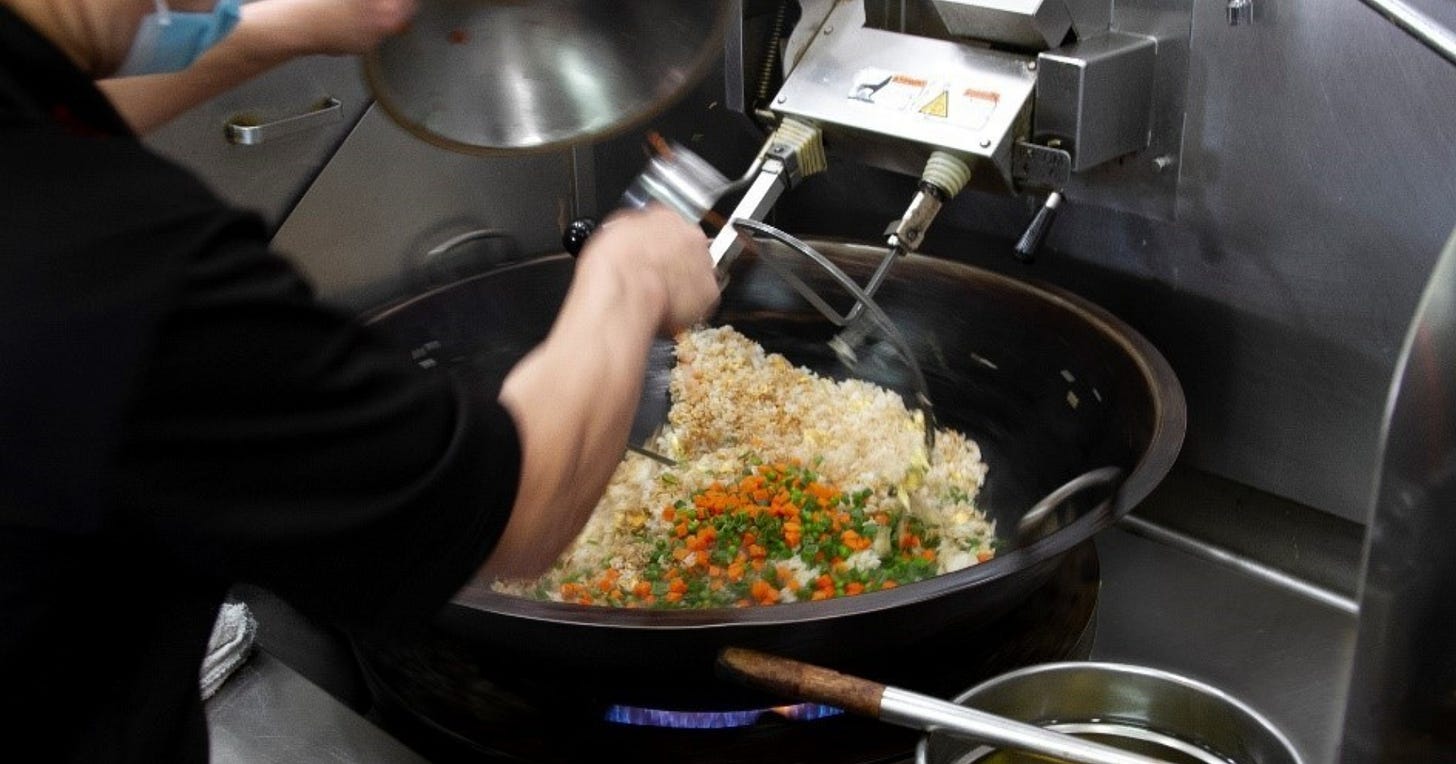
And how could we not include our friends at Amazon, the pioneer in human rights, equal access to pay, and social mobility. Their vision for last mile delivery is finally manifesting itself via its new Prime Air program. A humanless sense-and-avoid autonomous drone system which will deliver your package from the Amazon fulfillment center to your home, no human required.
I can’t help but feel that I have witnessed the world change before my eyes over the course of my 36-year life. Chances are, you have too. Fast food workers (my first job) are being displaced by technology. Software is configuring and deploying itself (I spent an early part of my career at Accenture doing this type of work). Most people with college degrees will have their job automated, replaced, or augmented by machines. It is not a matter of if, but when.
As the physical and digital world continues to blend, as AI permeates all aspects of our life, as technology indiscriminately decimates the modern workforce and pushes us to a new ‘meta-verse’ let’s take a moment to reflect on the question asked by Morpheus in the 90s blockbuster ‘The Matrix’:
Do you think that’s air you’re breathing?
Happy Independence Day,
John Cook
San Francisco, CA
July 4th, 2022
www.frontruncrypto.com
Improve your knowledge by reading these articles:
Welcome to 2030: where I will own nothing, have no privacy and love it.
Written for the World Economic Forum in 2016, I thought this was a meme, relegated to my archive of evernotes. In the spirit of automation, globalization and technology-led de-privatization of our lives, let’s take a moment to remember this article is not The Onion. It’s not the NYTimes, It is the World Economic Forum and this is their vision of our future:
Welcome to the year 2030. Welcome to my city - or should I say, "our city." I don't own anything. I don't own a car. I don't own a house. I don't own any appliances or any clothes. In our city we don't pay any rent, because someone else is using our free space whenever we do not need it. My living room is used for business meetings when I am not there. When AI and robots took over so much of our work, we suddenly had time to eat well, sleep well and spend time with other people. Shopping? I can't really remember what that is. For most of us, it has been turned into choosing things to use. Sometimes I find this fun, and sometimes I just want the algorithm to do it for me. It knows my taste better than I do by now.
Is de-globalization ahead? Conflicted opinions at Goldman Sachs.
An interesting point of view from 3 Goldman Sachs economists with 3 very different opinions on the role of globalization and its net benefit to the United States of America.
….globalization has subsidized US universities via the inflow of talented foreign students, provided consumers with a vast number of choices, and spurred significant innovation by fostering a global network of ideas. And the economies that have outperformed the US over the past two decades have done more—not less—to embrace globalization in areas such as immigration and foreign investment. With all this in mind, I just don't buy the idea that globalization has been a net negative for the US, or that withdrawing from it further could be a net positive.
…yet Last year, foreign investment into China surged to a record high, 60% of American companies operating in China reported that they increased investment there, and not a single firm relocated production from China to the US.
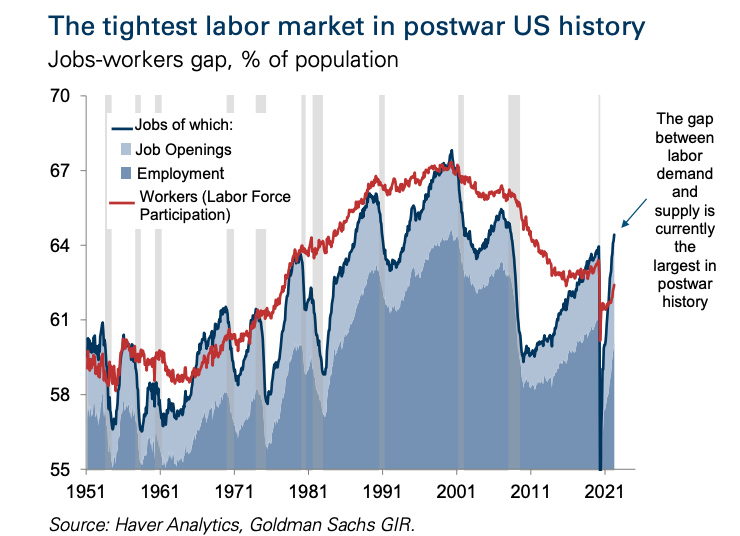
Ooops - AI is replacing the creatives.
My entire thesis for automation, ML and AI in the workforce is that will impact creatives and artists the least. Let’s pause that and introduce Dall-E. Named after famous artist Salvador Dalle , Dall-E uses artificial intelligence developed by OpenAI to create digital images from textual descriptions.
DALL-E is capable of generating imagery in a variety of styles, from photorealistic imagery[to paintings and emoji. It can also "manipulate and rearrange" objects in its images. One ability noted by its creators was the correct placement of design elements in novel compositions without explicit instruction: "For example, when asked to draw a daikon radish blowing its nose, sipping a latte, or riding a unicycle, DALL·E often draws the handkerchief, hands, and feet in plausible locations."
Quote of the week:
“I am of the camp that is concerned about super intelligence. First, the machine will do lots of jobs for us and not be super intelligent…a few decades after that though the intelligence is strong enough to be a concern. I agree with Elon and some others on this, and don’t understand why some people are not concerned” - Bill Gates, 2015



